-
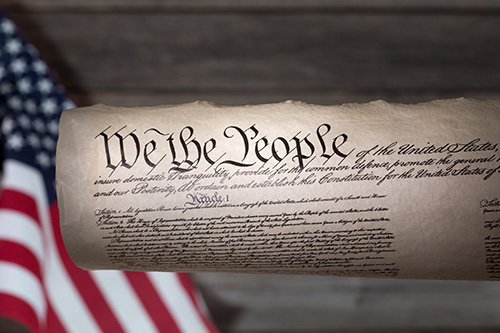 Sessions: 1Class Date(s): 05-07-2024 to 05-07-2024Day(s) of the week: TuesdayTime: 10:30 AM → 12:00 PMInstructor: Richard Bell, Professor of History, University of MarylandTerm: 2024-2Location: Online ClassThe Constitution is a much beloved document, a charter that many Americans regard with pride, reverence, and awe. Yet, over the past half-century, several historians have argued that many of its innocuous-sounding articles offered a dramatic giveaway to slaveholders. This program will help you determine where the truth lies. We’ll follow the framers of... read moreThe Constitution is a much beloved document, a charter that many Americans regard with pride, reverence, and awe. Yet, over the past half-century, several historians have argued that many of its innocuous-sounding articles offered a dramatic giveaway to slaveholders. This program will help you determine where the truth lies. We’ll follow the framers of the federal Constitution into their closed-door convention in Philadelphia in 1787 to see how northern delegates and southern delegates wrangled over whether or not slavery could continue to thrive in a nation founded on the principles of liberty and equality.
Sessions: 1Class Date(s): 05-07-2024 to 05-07-2024Day(s) of the week: TuesdayTime: 10:30 AM → 12:00 PMInstructor: Richard Bell, Professor of History, University of MarylandTerm: 2024-2Location: Online ClassThe Constitution is a much beloved document, a charter that many Americans regard with pride, reverence, and awe. Yet, over the past half-century, several historians have argued that many of its innocuous-sounding articles offered a dramatic giveaway to slaveholders. This program will help you determine where the truth lies. We’ll follow the framers of... read moreThe Constitution is a much beloved document, a charter that many Americans regard with pride, reverence, and awe. Yet, over the past half-century, several historians have argued that many of its innocuous-sounding articles offered a dramatic giveaway to slaveholders. This program will help you determine where the truth lies. We’ll follow the framers of the federal Constitution into their closed-door convention in Philadelphia in 1787 to see how northern delegates and southern delegates wrangled over whether or not slavery could continue to thrive in a nation founded on the principles of liberty and equality. -
 Sessions: 1Class Date(s): 05-14-2024 to 05-14-2024Day(s) of the week: TuesdayTime: 10:30 AM → 12:00 PMInstructor: David B Lindauer, Lt. Colonel (Ret.), US Army Signal CorpsTerm: 2024-2Location: Hybrid - At Oasis and OnlineWith all of the recent WWII presentations that focused on various campaigns in Europe, we sometimes lose track of an equally hard-fought war in Asia. For nearly four years British and Indian forces fought a very arduous campaign in southeast Asia, not only against the Japanese but against hunger, disease, jungle conditions, mountains, and monsoons. And... read moreWith all of the recent WWII presentations that focused on various campaigns in Europe, we sometimes lose track of an equally hard-fought war in Asia. For nearly four years British and Indian forces fought a very arduous campaign in southeast Asia, not only against the Japanese but against hunger, disease, jungle conditions, mountains, and monsoons. And they did this in remote areas where there were hardly any roads, railroads or airports, and where the most reliable means of transporting supplies was sometimes on the back of an elephant! Often overlooked by the British press, the British Fourteenth Army, became known as “The Forgotten Army.” This is their story and the story of their very remarkable commander, Field Marshal William Slim.
Sessions: 1Class Date(s): 05-14-2024 to 05-14-2024Day(s) of the week: TuesdayTime: 10:30 AM → 12:00 PMInstructor: David B Lindauer, Lt. Colonel (Ret.), US Army Signal CorpsTerm: 2024-2Location: Hybrid - At Oasis and OnlineWith all of the recent WWII presentations that focused on various campaigns in Europe, we sometimes lose track of an equally hard-fought war in Asia. For nearly four years British and Indian forces fought a very arduous campaign in southeast Asia, not only against the Japanese but against hunger, disease, jungle conditions, mountains, and monsoons. And... read moreWith all of the recent WWII presentations that focused on various campaigns in Europe, we sometimes lose track of an equally hard-fought war in Asia. For nearly four years British and Indian forces fought a very arduous campaign in southeast Asia, not only against the Japanese but against hunger, disease, jungle conditions, mountains, and monsoons. And they did this in remote areas where there were hardly any roads, railroads or airports, and where the most reliable means of transporting supplies was sometimes on the back of an elephant! Often overlooked by the British press, the British Fourteenth Army, became known as “The Forgotten Army.” This is their story and the story of their very remarkable commander, Field Marshal William Slim. -
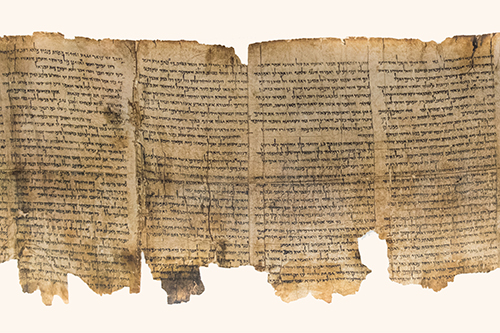 Sessions: 1Class Date(s): 05-14-2024 to 05-14-2024Day(s) of the week: TuesdayTime: 1:00 PM → 2:30 PMInstructor: Gary A. Rendsburg, Distinguished Professor, Jewish Studies, Rutgers UniversityTerm: 2024-2Location: Online ClassLearn the story of the groundbreaking discovery of the Dead Sea Scrolls in 1947, including the explorations of the caves and the excavations at Qumran, and the progress of scholarly work in the subsequent 75 years. We also will look at the key documents themselves, with an eye to uncovering the salient features of the Essene community which produced these... read moreLearn the story of the groundbreaking discovery of the Dead Sea Scrolls in 1947, including the explorations of the caves and the excavations at Qumran, and the progress of scholarly work in the subsequent 75 years. We also will look at the key documents themselves, with an eye to uncovering the salient features of the Essene community which produced these texts. Special attention will be paid to their unique theological positions, their relationship to other Jewish groups at the time, and their connections to early Christianity.
Sessions: 1Class Date(s): 05-14-2024 to 05-14-2024Day(s) of the week: TuesdayTime: 1:00 PM → 2:30 PMInstructor: Gary A. Rendsburg, Distinguished Professor, Jewish Studies, Rutgers UniversityTerm: 2024-2Location: Online ClassLearn the story of the groundbreaking discovery of the Dead Sea Scrolls in 1947, including the explorations of the caves and the excavations at Qumran, and the progress of scholarly work in the subsequent 75 years. We also will look at the key documents themselves, with an eye to uncovering the salient features of the Essene community which produced these... read moreLearn the story of the groundbreaking discovery of the Dead Sea Scrolls in 1947, including the explorations of the caves and the excavations at Qumran, and the progress of scholarly work in the subsequent 75 years. We also will look at the key documents themselves, with an eye to uncovering the salient features of the Essene community which produced these texts. Special attention will be paid to their unique theological positions, their relationship to other Jewish groups at the time, and their connections to early Christianity. -
 Sessions: 1Class Date(s): 05-20-2024 to 05-20-2024Day(s) of the week: MondayTime: 1:00 PM → 2:15 PMInstructor: Adam Brookes, Journalist and Foreign CorrespondentTerm: 2024-2Location: Hybrid - At Oasis and OnlineThis class is a talk with slides presenting Adam Brookes’s work of narrative non-fiction FRAGILE CARGO: The World War II Race to Save the Treasures of China’s Forbidden City. FRAGILE CARGO tells the true story – for the first time in English – of the brave curators and art historians who saved the imperial art collections of China from devastation... read moreThis class is a talk with slides presenting Adam Brookes’s work of narrative non-fiction FRAGILE CARGO: The World War II Race to Save the Treasures of China’s Forbidden City. FRAGILE CARGO tells the true story – for the first time in English – of the brave curators and art historians who saved the imperial art collections of China from devastation and plunder during Japan's invasion of China. To do so, the curators crated up a quarter of a million objects and books and for sixteen years transported them through war-torn China in search of safety
Sessions: 1Class Date(s): 05-20-2024 to 05-20-2024Day(s) of the week: MondayTime: 1:00 PM → 2:15 PMInstructor: Adam Brookes, Journalist and Foreign CorrespondentTerm: 2024-2Location: Hybrid - At Oasis and OnlineThis class is a talk with slides presenting Adam Brookes’s work of narrative non-fiction FRAGILE CARGO: The World War II Race to Save the Treasures of China’s Forbidden City. FRAGILE CARGO tells the true story – for the first time in English – of the brave curators and art historians who saved the imperial art collections of China from devastation... read moreThis class is a talk with slides presenting Adam Brookes’s work of narrative non-fiction FRAGILE CARGO: The World War II Race to Save the Treasures of China’s Forbidden City. FRAGILE CARGO tells the true story – for the first time in English – of the brave curators and art historians who saved the imperial art collections of China from devastation and plunder during Japan's invasion of China. To do so, the curators crated up a quarter of a million objects and books and for sixteen years transported them through war-torn China in search of safety -
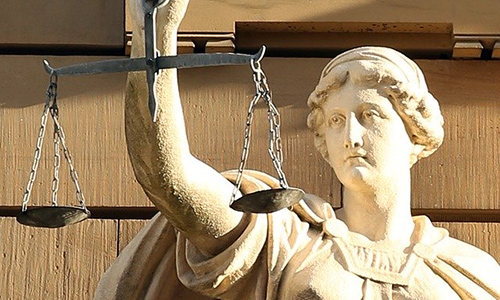 Sessions: 1Class Date(s): 05-29-2024 to 05-29-2024Day(s) of the week: WednesdayTime: 10:30 AM → 12:00 PMInstructor: John McCarthy, Montgomery County State's AttorneyTerm: 2024-2Location: Hybrid - At Oasis and Online(Please note: The date of this class has been changed from May 8 to May 29.) This presentation will discuss the evolution of American privacy laws, from its origins in Constitutional amendments through to recent case law. There will be a particular focus on media privacy and reproductive privacy rights. The cases discussed will be New York Times Co. v.... read more(Please note: The date of this class has been changed from May 8 to May 29.) This presentation will discuss the evolution of American privacy laws, from its origins in Constitutional amendments through to recent case law. There will be a particular focus on media privacy and reproductive privacy rights. The cases discussed will be New York Times Co. v. Sullivan (1964), Griswold v. Connecticut (1965), Roe v. Wade (1973), and Dobbs v. Jackson Women's Health Organization (2022).
Sessions: 1Class Date(s): 05-29-2024 to 05-29-2024Day(s) of the week: WednesdayTime: 10:30 AM → 12:00 PMInstructor: John McCarthy, Montgomery County State's AttorneyTerm: 2024-2Location: Hybrid - At Oasis and Online(Please note: The date of this class has been changed from May 8 to May 29.) This presentation will discuss the evolution of American privacy laws, from its origins in Constitutional amendments through to recent case law. There will be a particular focus on media privacy and reproductive privacy rights. The cases discussed will be New York Times Co. v.... read more(Please note: The date of this class has been changed from May 8 to May 29.) This presentation will discuss the evolution of American privacy laws, from its origins in Constitutional amendments through to recent case law. There will be a particular focus on media privacy and reproductive privacy rights. The cases discussed will be New York Times Co. v. Sullivan (1964), Griswold v. Connecticut (1965), Roe v. Wade (1973), and Dobbs v. Jackson Women's Health Organization (2022). -
 Sessions: 1Class Date(s): 05-29-2024 to 05-29-2024Day(s) of the week: WednesdayTime: 1:00 PM → 2:00 PMInstructor: Charlotte Gray, AuthorTerm: 2024-2Location: Online ClassIn 1854, Jennie Jerome (future mother of Winston Churchill) and Sara Delano (future mother of Franklin Delano Roosevelt) were born. They grew up with incredible privilege but refused to settle into predictable, sheltered lives. They lived life on their own terms, but both enabled their sons to reach the epicentre of political power on two continents.... read moreIn 1854, Jennie Jerome (future mother of Winston Churchill) and Sara Delano (future mother of Franklin Delano Roosevelt) were born. They grew up with incredible privilege but refused to settle into predictable, sheltered lives. They lived life on their own terms, but both enabled their sons to reach the epicentre of political power on two continents. Charlotte Gray breathes new life into the stories of Jennie and Sara, arguing that the mothers were crucial in shaping their sons’ habits and careers. Gray’s book has been described as a “terrific and insightful double biography.”
Sessions: 1Class Date(s): 05-29-2024 to 05-29-2024Day(s) of the week: WednesdayTime: 1:00 PM → 2:00 PMInstructor: Charlotte Gray, AuthorTerm: 2024-2Location: Online ClassIn 1854, Jennie Jerome (future mother of Winston Churchill) and Sara Delano (future mother of Franklin Delano Roosevelt) were born. They grew up with incredible privilege but refused to settle into predictable, sheltered lives. They lived life on their own terms, but both enabled their sons to reach the epicentre of political power on two continents.... read moreIn 1854, Jennie Jerome (future mother of Winston Churchill) and Sara Delano (future mother of Franklin Delano Roosevelt) were born. They grew up with incredible privilege but refused to settle into predictable, sheltered lives. They lived life on their own terms, but both enabled their sons to reach the epicentre of political power on two continents. Charlotte Gray breathes new life into the stories of Jennie and Sara, arguing that the mothers were crucial in shaping their sons’ habits and careers. Gray’s book has been described as a “terrific and insightful double biography.” -
 Sessions: 1Class Date(s): 06-03-2024 to 06-03-2024Day(s) of the week: MondayTime: 1:00 PM → 2:30 PMInstructor: Denver Brunsman, Associate Chair, Department of History, George Washington UniversityTerm: 2024-2Location: Hybrid - At Oasis and OnlineAs we head into the fall election, Denver Brunsman of George Washington University will discuss the history of the Electoral College. Agreed to in the last days of the Constitutional Convention, the Electoral College persists to this day as a relic of 18th-century political thought and compromise. Why did the framers of the Constitution create such a... read moreAs we head into the fall election, Denver Brunsman of George Washington University will discuss the history of the Electoral College. Agreed to in the last days of the Constitutional Convention, the Electoral College persists to this day as a relic of 18th-century political thought and compromise. Why did the framers of the Constitution create such a complicated system for electing the President? Professor Brunsman will explore this and other questions about what might be America’s most unloved political institution.
Sessions: 1Class Date(s): 06-03-2024 to 06-03-2024Day(s) of the week: MondayTime: 1:00 PM → 2:30 PMInstructor: Denver Brunsman, Associate Chair, Department of History, George Washington UniversityTerm: 2024-2Location: Hybrid - At Oasis and OnlineAs we head into the fall election, Denver Brunsman of George Washington University will discuss the history of the Electoral College. Agreed to in the last days of the Constitutional Convention, the Electoral College persists to this day as a relic of 18th-century political thought and compromise. Why did the framers of the Constitution create such a... read moreAs we head into the fall election, Denver Brunsman of George Washington University will discuss the history of the Electoral College. Agreed to in the last days of the Constitutional Convention, the Electoral College persists to this day as a relic of 18th-century political thought and compromise. Why did the framers of the Constitution create such a complicated system for electing the President? Professor Brunsman will explore this and other questions about what might be America’s most unloved political institution. -
 Sessions: 1Class Date(s): 06-04-2024 to 06-04-2024Day(s) of the week: TuesdayTime: 10:30 AM → 12:00 PMInstructor: Richard Bell, Professor of History, University of MarylandTerm: 2024-2Location: Online ClassSeen through American eyes, the Revolution marks a triumphant moment. Through British eyes, it looked quite different. To the King, the war for independence was an affront, a temper tantrum by an ungrateful colonial rabble. But, as historian Richard Bell explains, beyond the palace and Parliament, British responses to the war were anything but monolithic.... read moreSeen through American eyes, the Revolution marks a triumphant moment. Through British eyes, it looked quite different. To the King, the war for independence was an affront, a temper tantrum by an ungrateful colonial rabble. But, as historian Richard Bell explains, beyond the palace and Parliament, British responses to the war were anything but monolithic. The country was bitterly divided as to what the war was about, how to win it, and whether it was worth it.
Sessions: 1Class Date(s): 06-04-2024 to 06-04-2024Day(s) of the week: TuesdayTime: 10:30 AM → 12:00 PMInstructor: Richard Bell, Professor of History, University of MarylandTerm: 2024-2Location: Online ClassSeen through American eyes, the Revolution marks a triumphant moment. Through British eyes, it looked quite different. To the King, the war for independence was an affront, a temper tantrum by an ungrateful colonial rabble. But, as historian Richard Bell explains, beyond the palace and Parliament, British responses to the war were anything but monolithic.... read moreSeen through American eyes, the Revolution marks a triumphant moment. Through British eyes, it looked quite different. To the King, the war for independence was an affront, a temper tantrum by an ungrateful colonial rabble. But, as historian Richard Bell explains, beyond the palace and Parliament, British responses to the war were anything but monolithic. The country was bitterly divided as to what the war was about, how to win it, and whether it was worth it. -
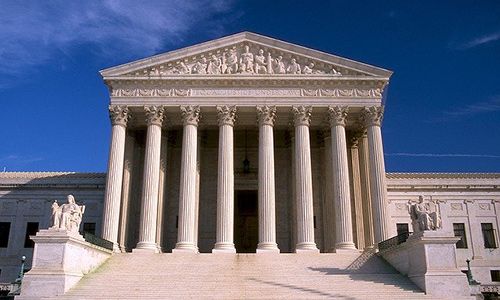 Sessions: 1Class Date(s): 06-05-2024 to 06-05-2024Day(s) of the week: WednesdayTime: 10:30 AM → 12:00 PMInstructor: John McCarthy, Montgomery County State's AttorneyTerm: 2024-2Location: Hybrid - At Oasis and OnlineThe Supreme Court has not always made the right decision. This presentation will be a careful analysis of what history has told us are four of the worst cases ever decided by the Supreme Court. The cases discussed will include Plessy v. Ferguson (1896), Dred Scott v. Sandford (1857), Korematsu v. United States (1944), and Buck v. Bell... read moreThe Supreme Court has not always made the right decision. This presentation will be a careful analysis of what history has told us are four of the worst cases ever decided by the Supreme Court. The cases discussed will include Plessy v. Ferguson (1896), Dred Scott v. Sandford (1857), Korematsu v. United States (1944), and Buck v. Bell (1927).
Sessions: 1Class Date(s): 06-05-2024 to 06-05-2024Day(s) of the week: WednesdayTime: 10:30 AM → 12:00 PMInstructor: John McCarthy, Montgomery County State's AttorneyTerm: 2024-2Location: Hybrid - At Oasis and OnlineThe Supreme Court has not always made the right decision. This presentation will be a careful analysis of what history has told us are four of the worst cases ever decided by the Supreme Court. The cases discussed will include Plessy v. Ferguson (1896), Dred Scott v. Sandford (1857), Korematsu v. United States (1944), and Buck v. Bell... read moreThe Supreme Court has not always made the right decision. This presentation will be a careful analysis of what history has told us are four of the worst cases ever decided by the Supreme Court. The cases discussed will include Plessy v. Ferguson (1896), Dred Scott v. Sandford (1857), Korematsu v. United States (1944), and Buck v. Bell (1927). -
 Sessions: 1Class Date(s): 06-13-2024 to 06-13-2024Day(s) of the week: ThursdayTime: 1:00 PM → 2:00 PMInstructor: Dorothy Trench Bonett, WriterTerm: 2024-2Location: Hybrid - At Oasis and OnlineSince Westerners first came into contact with China, there has been an interest in Chinese women, seen as so alien. In recent years, feminism has focused on this ancient culture and novels like Lady Tan’s, "Circle of Women" have explored the lives of those who ‘transcended’ what is seen as millennia of oppression. But how accurate are they? Dorothy... read moreSince Westerners first came into contact with China, there has been an interest in Chinese women, seen as so alien. In recent years, feminism has focused on this ancient culture and novels like Lady Tan’s, "Circle of Women" have explored the lives of those who ‘transcended’ what is seen as millennia of oppression. But how accurate are they? Dorothy Trench Bonett will present recent research about imperial China, often from women’s own writings, to answer this question. (See related class #367)
Sessions: 1Class Date(s): 06-13-2024 to 06-13-2024Day(s) of the week: ThursdayTime: 1:00 PM → 2:00 PMInstructor: Dorothy Trench Bonett, WriterTerm: 2024-2Location: Hybrid - At Oasis and OnlineSince Westerners first came into contact with China, there has been an interest in Chinese women, seen as so alien. In recent years, feminism has focused on this ancient culture and novels like Lady Tan’s, "Circle of Women" have explored the lives of those who ‘transcended’ what is seen as millennia of oppression. But how accurate are they? Dorothy... read moreSince Westerners first came into contact with China, there has been an interest in Chinese women, seen as so alien. In recent years, feminism has focused on this ancient culture and novels like Lady Tan’s, "Circle of Women" have explored the lives of those who ‘transcended’ what is seen as millennia of oppression. But how accurate are they? Dorothy Trench Bonett will present recent research about imperial China, often from women’s own writings, to answer this question. (See related class #367) -
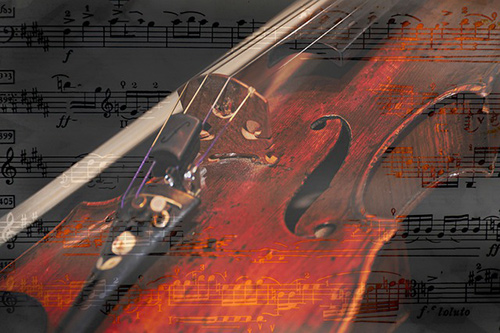 Sessions: 1Class Date(s): 06-17-2024 to 06-17-2024Day(s) of the week: MondayTime: 10:30 AM → 11:30 AMInstructor: Julianne Mangin, Writer and HistorianTerm: 2024-2Location: Hybrid - At Oasis and OnlineFiddler Will Adams had deep roots in the African American communities of Montgomery County from Sandy Spring to Norbeck to Ken-Gar. In 1953, he was recorded by folklorist Mike Seeger (half-brother of Pete Seeger) who grew up in Chevy Chase. Adams’ family history offers a glimpse of African American life in Montgomery County from the final years of slavery... read moreFiddler Will Adams had deep roots in the African American communities of Montgomery County from Sandy Spring to Norbeck to Ken-Gar. In 1953, he was recorded by folklorist Mike Seeger (half-brother of Pete Seeger) who grew up in Chevy Chase. Adams’ family history offers a glimpse of African American life in Montgomery County from the final years of slavery to the mid-twentieth century. Learn how the music of both Adams and Seeger lives on among contemporary old-time musicians.
Sessions: 1Class Date(s): 06-17-2024 to 06-17-2024Day(s) of the week: MondayTime: 10:30 AM → 11:30 AMInstructor: Julianne Mangin, Writer and HistorianTerm: 2024-2Location: Hybrid - At Oasis and OnlineFiddler Will Adams had deep roots in the African American communities of Montgomery County from Sandy Spring to Norbeck to Ken-Gar. In 1953, he was recorded by folklorist Mike Seeger (half-brother of Pete Seeger) who grew up in Chevy Chase. Adams’ family history offers a glimpse of African American life in Montgomery County from the final years of slavery... read moreFiddler Will Adams had deep roots in the African American communities of Montgomery County from Sandy Spring to Norbeck to Ken-Gar. In 1953, he was recorded by folklorist Mike Seeger (half-brother of Pete Seeger) who grew up in Chevy Chase. Adams’ family history offers a glimpse of African American life in Montgomery County from the final years of slavery to the mid-twentieth century. Learn how the music of both Adams and Seeger lives on among contemporary old-time musicians. -
 Sessions: 1Class Date(s): 06-20-2024 to 06-20-2024Day(s) of the week: ThursdayTime: 1:00 PM → 2:00 PMInstructor: Dorothy Trench Bonett, WriterTerm: 2024-2Location: Hybrid - At Oasis and OnlineDid women have a Renaissance? The historical answer is yes. But what does this mean? In her talk, Dorothy Trench Bonett will discuss the effects of humanism on women’s education in 15th and 16th century Europe and introduce women like Sophonisba Anguissola, Marguerite de Navarre and Louise Labe who painted, sculpted and wrote poetry and plays in this... read moreDid women have a Renaissance? The historical answer is yes. But what does this mean? In her talk, Dorothy Trench Bonett will discuss the effects of humanism on women’s education in 15th and 16th century Europe and introduce women like Sophonisba Anguissola, Marguerite de Navarre and Louise Labe who painted, sculpted and wrote poetry and plays in this period, and promoted scholarship. She will consider the differences between their works and those of men and changes from the medieval period. (see related class #357)
Sessions: 1Class Date(s): 06-20-2024 to 06-20-2024Day(s) of the week: ThursdayTime: 1:00 PM → 2:00 PMInstructor: Dorothy Trench Bonett, WriterTerm: 2024-2Location: Hybrid - At Oasis and OnlineDid women have a Renaissance? The historical answer is yes. But what does this mean? In her talk, Dorothy Trench Bonett will discuss the effects of humanism on women’s education in 15th and 16th century Europe and introduce women like Sophonisba Anguissola, Marguerite de Navarre and Louise Labe who painted, sculpted and wrote poetry and plays in this... read moreDid women have a Renaissance? The historical answer is yes. But what does this mean? In her talk, Dorothy Trench Bonett will discuss the effects of humanism on women’s education in 15th and 16th century Europe and introduce women like Sophonisba Anguissola, Marguerite de Navarre and Louise Labe who painted, sculpted and wrote poetry and plays in this period, and promoted scholarship. She will consider the differences between their works and those of men and changes from the medieval period. (see related class #357) -
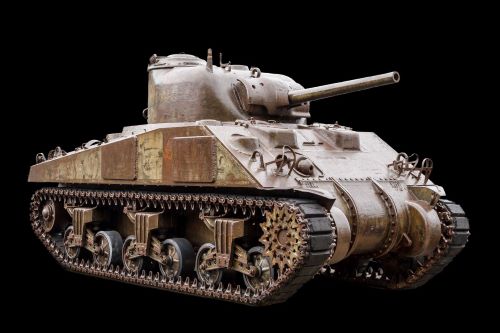 Sessions: 1Class Date(s): 06-25-2024 to 06-25-2024Day(s) of the week: TuesdayTime: 10:30 AM → 12:00 PMInstructor: David B Lindauer, Lt. Colonel (Ret.), US Army Signal CorpsTerm: 2024-2Location: Hybrid - At Oasis and OnlineRarely in modern military history has any unit identified so strongly with its commander as did Patton’s Third Army in the final campaigns of World War II. We will take a look at the Third Army, its commander, and its notable campaigns from the breakout from Normandy until it crossed Germany and entered Czechoslovakia. Along the way, we’ll discuss some... read moreRarely in modern military history has any unit identified so strongly with its commander as did Patton’s Third Army in the final campaigns of World War II. We will take a look at the Third Army, its commander, and its notable campaigns from the breakout from Normandy until it crossed Germany and entered Czechoslovakia. Along the way, we’ll discuss some vignettes about a few of the people in the Third Army. The Third Army was in combat only from August 1944 until May 1945 (that is, 281 days); but its contribution to the victory of the Western Allies was spectacular.
Sessions: 1Class Date(s): 06-25-2024 to 06-25-2024Day(s) of the week: TuesdayTime: 10:30 AM → 12:00 PMInstructor: David B Lindauer, Lt. Colonel (Ret.), US Army Signal CorpsTerm: 2024-2Location: Hybrid - At Oasis and OnlineRarely in modern military history has any unit identified so strongly with its commander as did Patton’s Third Army in the final campaigns of World War II. We will take a look at the Third Army, its commander, and its notable campaigns from the breakout from Normandy until it crossed Germany and entered Czechoslovakia. Along the way, we’ll discuss some... read moreRarely in modern military history has any unit identified so strongly with its commander as did Patton’s Third Army in the final campaigns of World War II. We will take a look at the Third Army, its commander, and its notable campaigns from the breakout from Normandy until it crossed Germany and entered Czechoslovakia. Along the way, we’ll discuss some vignettes about a few of the people in the Third Army. The Third Army was in combat only from August 1944 until May 1945 (that is, 281 days); but its contribution to the victory of the Western Allies was spectacular. -
 Sessions: 1Class Date(s): 06-25-2024 to 06-25-2024Day(s) of the week: TuesdayTime: 1:00 PM → 2:30 PMInstructor: Barbara Blumberg Ressin, CCBCTerm: 2024-2Location: Hybrid - At Oasis and OnlineFashion has been in existence in America since the first Pilgrim women arrived in the 1600s. What determined fashion is as varied as the fashions themselves. Mores, religion, government, politics, laws, wars, economics, and practicality all played significant roles in deciding what we women should wear. By way of a PowerPoint that includes videos of... read moreFashion has been in existence in America since the first Pilgrim women arrived in the 1600s. What determined fashion is as varied as the fashions themselves. Mores, religion, government, politics, laws, wars, economics, and practicality all played significant roles in deciding what we women should wear. By way of a PowerPoint that includes videos of fashions from the colonial period up through today's fashions, you will witness the ultimate fashion show. From watching how many layers of clothing women had to wear hundred's of years ago, to actual fashion shows from 1917 on up, you will witness what we women have had to put up with and all in the name of fashion.
Sessions: 1Class Date(s): 06-25-2024 to 06-25-2024Day(s) of the week: TuesdayTime: 1:00 PM → 2:30 PMInstructor: Barbara Blumberg Ressin, CCBCTerm: 2024-2Location: Hybrid - At Oasis and OnlineFashion has been in existence in America since the first Pilgrim women arrived in the 1600s. What determined fashion is as varied as the fashions themselves. Mores, religion, government, politics, laws, wars, economics, and practicality all played significant roles in deciding what we women should wear. By way of a PowerPoint that includes videos of... read moreFashion has been in existence in America since the first Pilgrim women arrived in the 1600s. What determined fashion is as varied as the fashions themselves. Mores, religion, government, politics, laws, wars, economics, and practicality all played significant roles in deciding what we women should wear. By way of a PowerPoint that includes videos of fashions from the colonial period up through today's fashions, you will witness the ultimate fashion show. From watching how many layers of clothing women had to wear hundred's of years ago, to actual fashion shows from 1917 on up, you will witness what we women have had to put up with and all in the name of fashion. -
 Sessions: 1Class Date(s): 07-02-2024 to 07-02-2024Day(s) of the week: TuesdayTime: 10:30 AM → 12:00 PMInstructor: Richard Bell, Professor of History, University of MarylandTerm: 2024-2Location: Online ClassWhen Tom Paine, the author of Common Sense, died in June 1809 only a dozen people came to his funeral. This program examines Paine’s meteoric rise to celebrity status during the American Revolution and his equally dramatic fall from grace in the decades afterwards. Once lionized as our most relatable and revolutionary founding father, Tom Paine died a... read moreWhen Tom Paine, the author of Common Sense, died in June 1809 only a dozen people came to his funeral. This program examines Paine’s meteoric rise to celebrity status during the American Revolution and his equally dramatic fall from grace in the decades afterwards. Once lionized as our most relatable and revolutionary founding father, Tom Paine died a pariah, too radical and uncompromising for the cautious new country he had called into being.
Sessions: 1Class Date(s): 07-02-2024 to 07-02-2024Day(s) of the week: TuesdayTime: 10:30 AM → 12:00 PMInstructor: Richard Bell, Professor of History, University of MarylandTerm: 2024-2Location: Online ClassWhen Tom Paine, the author of Common Sense, died in June 1809 only a dozen people came to his funeral. This program examines Paine’s meteoric rise to celebrity status during the American Revolution and his equally dramatic fall from grace in the decades afterwards. Once lionized as our most relatable and revolutionary founding father, Tom Paine died a... read moreWhen Tom Paine, the author of Common Sense, died in June 1809 only a dozen people came to his funeral. This program examines Paine’s meteoric rise to celebrity status during the American Revolution and his equally dramatic fall from grace in the decades afterwards. Once lionized as our most relatable and revolutionary founding father, Tom Paine died a pariah, too radical and uncompromising for the cautious new country he had called into being. -
 Sessions: 1Class Date(s): 07-10-2024 to 07-10-2024Day(s) of the week: WednesdayTime: 10:30 AM → 12:00 PMInstructor: John McCarthy, Montgomery County State's AttorneyTerm: 2024-2Location: Hybrid - At Oasis and OnlineThe Supreme Court has set the parameters for American criminal procedure since the ratification of the Fourth, Fifth, and Sixth Amendments. For better or for worse, the decisions dictate the entirety of the process of the criminal justice system. This presentation will focus on four of the most important Supreme Court cases in criminal procedure, including... read moreThe Supreme Court has set the parameters for American criminal procedure since the ratification of the Fourth, Fifth, and Sixth Amendments. For better or for worse, the decisions dictate the entirety of the process of the criminal justice system. This presentation will focus on four of the most important Supreme Court cases in criminal procedure, including In re Gault (1967), Miranda v. Arizona (1967), Brady v. Maryland (1963), and Mapp v. Ohio (1961).
Sessions: 1Class Date(s): 07-10-2024 to 07-10-2024Day(s) of the week: WednesdayTime: 10:30 AM → 12:00 PMInstructor: John McCarthy, Montgomery County State's AttorneyTerm: 2024-2Location: Hybrid - At Oasis and OnlineThe Supreme Court has set the parameters for American criminal procedure since the ratification of the Fourth, Fifth, and Sixth Amendments. For better or for worse, the decisions dictate the entirety of the process of the criminal justice system. This presentation will focus on four of the most important Supreme Court cases in criminal procedure, including... read moreThe Supreme Court has set the parameters for American criminal procedure since the ratification of the Fourth, Fifth, and Sixth Amendments. For better or for worse, the decisions dictate the entirety of the process of the criminal justice system. This presentation will focus on four of the most important Supreme Court cases in criminal procedure, including In re Gault (1967), Miranda v. Arizona (1967), Brady v. Maryland (1963), and Mapp v. Ohio (1961). -
 Sessions: 1Class Date(s): 07-15-2024 to 07-15-2024Day(s) of the week: MondayTime: 1:00 PM → 2:00 PMInstructor: Patricia Maclay, Board Member, The American Friends of LafayetteTerm: 2024-2Location: Hybrid - At Oasis and OnlineIn August 1824, the Marquis de Lafayette, a Frenchman and the last surviving major general of the American Revolution, triumphantly returned to the country he loved. Over the next year, Lafayette covered over 6000 miles by carriage, stagecoach, canal barge, and steamboat, traveling to all 24 exiting states and “Washington City.” This presentation will... read moreIn August 1824, the Marquis de Lafayette, a Frenchman and the last surviving major general of the American Revolution, triumphantly returned to the country he loved. Over the next year, Lafayette covered over 6000 miles by carriage, stagecoach, canal barge, and steamboat, traveling to all 24 exiting states and “Washington City.” This presentation will cover the details of Lafayette’s Farewell Tour of America, and how it will be celebrated in 2024 – 2025.
Sessions: 1Class Date(s): 07-15-2024 to 07-15-2024Day(s) of the week: MondayTime: 1:00 PM → 2:00 PMInstructor: Patricia Maclay, Board Member, The American Friends of LafayetteTerm: 2024-2Location: Hybrid - At Oasis and OnlineIn August 1824, the Marquis de Lafayette, a Frenchman and the last surviving major general of the American Revolution, triumphantly returned to the country he loved. Over the next year, Lafayette covered over 6000 miles by carriage, stagecoach, canal barge, and steamboat, traveling to all 24 exiting states and “Washington City.” This presentation will... read moreIn August 1824, the Marquis de Lafayette, a Frenchman and the last surviving major general of the American Revolution, triumphantly returned to the country he loved. Over the next year, Lafayette covered over 6000 miles by carriage, stagecoach, canal barge, and steamboat, traveling to all 24 exiting states and “Washington City.” This presentation will cover the details of Lafayette’s Farewell Tour of America, and how it will be celebrated in 2024 – 2025. -
 Sessions: 1Class Date(s): 07-24-2024 to 07-24-2024Day(s) of the week: WednesdayTime: 10:30 AM → 11:45 AMInstructor: Jenna Febrizio, PhD, Curator and Director of Education, Heurich House MuseumTerm: 2024-2Location: Hybrid - At Oasis and OnlineLocated in Dupont Circle, the Heurich House Museum explores the American Experience through the legacy of German immigrant Christian Heurich and his Washington, DC Brewery and creates an equitable path to success for local small-scale businesses. The Heurich family lived in the Victorian-era mansion from 1894 to 1956. The house included many... read moreLocated in Dupont Circle, the Heurich House Museum explores the American Experience through the legacy of German immigrant Christian Heurich and his Washington, DC Brewery and creates an equitable path to success for local small-scale businesses. The Heurich family lived in the Victorian-era mansion from 1894 to 1956. The house included many technological advancements, including electric lighting and "fireproofing" and the interior decoration and furnishings were made by numerous German-American craftspeople. Through research, the museum has uncovered the names of almost 150 people who worked as household staff and are about to begin a research project to learn more about the artisans.
Sessions: 1Class Date(s): 07-24-2024 to 07-24-2024Day(s) of the week: WednesdayTime: 10:30 AM → 11:45 AMInstructor: Jenna Febrizio, PhD, Curator and Director of Education, Heurich House MuseumTerm: 2024-2Location: Hybrid - At Oasis and OnlineLocated in Dupont Circle, the Heurich House Museum explores the American Experience through the legacy of German immigrant Christian Heurich and his Washington, DC Brewery and creates an equitable path to success for local small-scale businesses. The Heurich family lived in the Victorian-era mansion from 1894 to 1956. The house included many... read moreLocated in Dupont Circle, the Heurich House Museum explores the American Experience through the legacy of German immigrant Christian Heurich and his Washington, DC Brewery and creates an equitable path to success for local small-scale businesses. The Heurich family lived in the Victorian-era mansion from 1894 to 1956. The house included many technological advancements, including electric lighting and "fireproofing" and the interior decoration and furnishings were made by numerous German-American craftspeople. Through research, the museum has uncovered the names of almost 150 people who worked as household staff and are about to begin a research project to learn more about the artisans. -
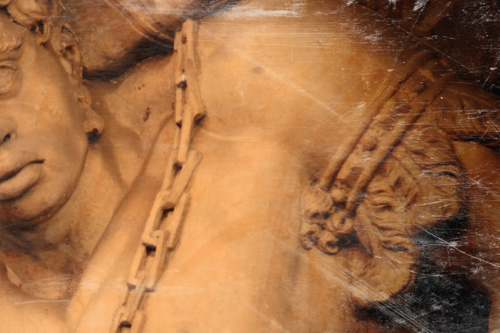 Sessions: 1Class Date(s): 07-30-2024 to 07-30-2024Day(s) of the week: TuesdayTime: 10:30 AM → 12:00 PMInstructor: Richard Bell, Professor of History, University of MarylandTerm: 2024-2Location: Online ClassThe Transatlantic Slave Trade was the largest forced migration in human history. In all, more than 12 million African men, women, and children were kidnapped, enslaved and made to board European ships destined for the New World. However, this talk turns this history inside out, examining the huge varieties of African resistance to this 400-year-long... read moreThe Transatlantic Slave Trade was the largest forced migration in human history. In all, more than 12 million African men, women, and children were kidnapped, enslaved and made to board European ships destined for the New World. However, this talk turns this history inside out, examining the huge varieties of African resistance to this 400-year-long nightmare first within Africa itself and then aboard those nightmare ships on their way across the Atlantic.
Sessions: 1Class Date(s): 07-30-2024 to 07-30-2024Day(s) of the week: TuesdayTime: 10:30 AM → 12:00 PMInstructor: Richard Bell, Professor of History, University of MarylandTerm: 2024-2Location: Online ClassThe Transatlantic Slave Trade was the largest forced migration in human history. In all, more than 12 million African men, women, and children were kidnapped, enslaved and made to board European ships destined for the New World. However, this talk turns this history inside out, examining the huge varieties of African resistance to this 400-year-long... read moreThe Transatlantic Slave Trade was the largest forced migration in human history. In all, more than 12 million African men, women, and children were kidnapped, enslaved and made to board European ships destined for the New World. However, this talk turns this history inside out, examining the huge varieties of African resistance to this 400-year-long nightmare first within Africa itself and then aboard those nightmare ships on their way across the Atlantic. -
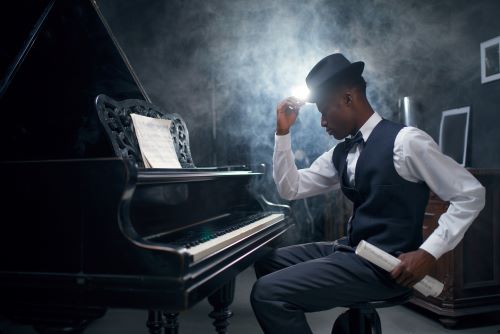 Sessions: 1Class Date(s): 08-13-2024 to 08-13-2024Day(s) of the week: TuesdayTime: 1:00 PM → 2:00 PMInstructor: Briana Thomas, Historian, Journalist and Tour GuideTerm: 2024-2Location: Online ClassBefore chain coffeeshops and luxury high-rises, before desegregation and the 1968 riots, Washington’s Greater U Street was known as Black... read more
Sessions: 1Class Date(s): 08-13-2024 to 08-13-2024Day(s) of the week: TuesdayTime: 1:00 PM → 2:00 PMInstructor: Briana Thomas, Historian, Journalist and Tour GuideTerm: 2024-2Location: Online ClassBefore chain coffeeshops and luxury high-rises, before desegregation and the 1968 riots, Washington’s Greater U Street was known as Black... read more
